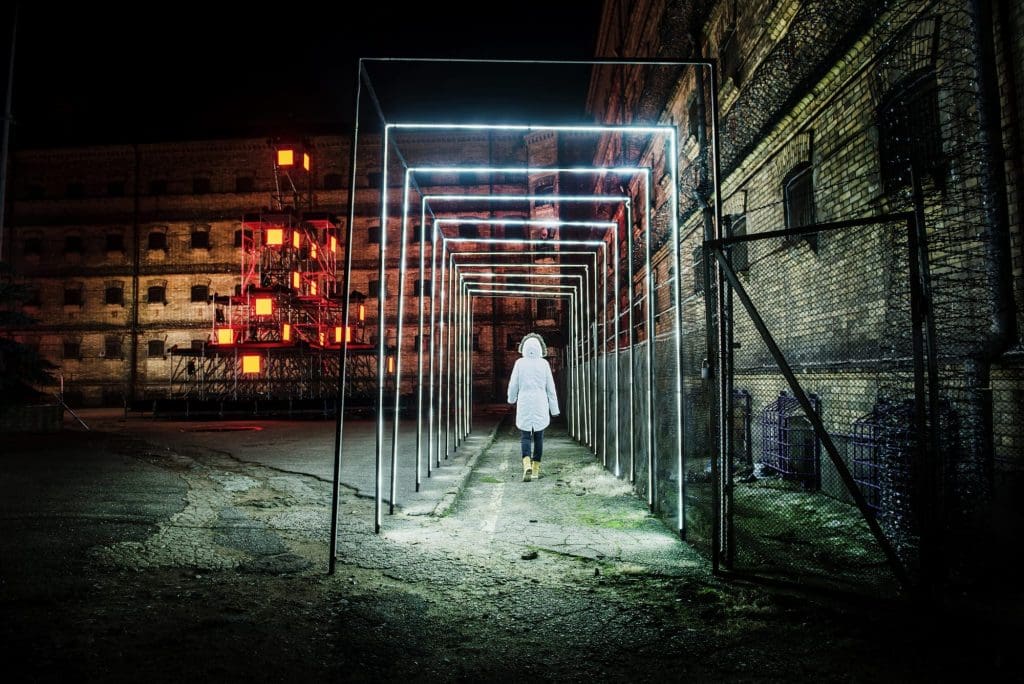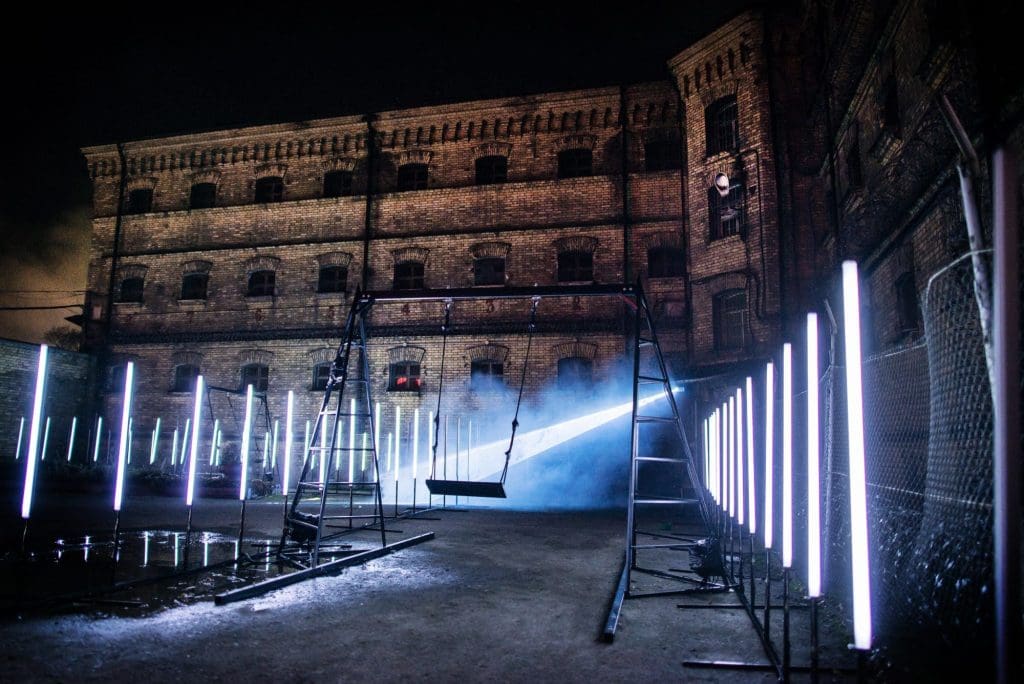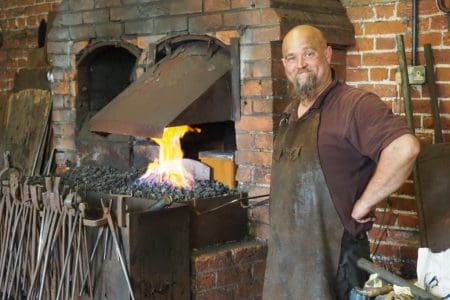Through the winter holidays, the Alternative Christmas Yard is going to welcome residents and guests of the Lithuanian capital Vilnius to the courtyard of the former Lukiškės prison.
The centrally-located city jail will host the light installations symbolizing the transformation of this space and its search for a new identity.
Apart from the light installations, the Alternative Christmas Yard will offer its visitors a water sculpture, which will serve as an alternative Christmas Tree, and the interactive swings. It will also play a role of an alternative meeting point and a substitute for traditional Christmas markets. Last year, a similar experimental Christmas hotspot in Vilnius was built on the non-operating platforms of the city’s railway station.

“Christmas spirit will invade the zone that for so long was beyond the reach of most city residents and guests. The city sees this former prison yard as an open cultural space that may be used for events and other needs of citizens and businesses. The initiative of the Alternative Christmas Yard will become an impulse that can make this part of the city centre more attractive,” said Remigijus Šimašius, Mayor of Vilnius city.
Lukiškės prison used to be one of the least attractive spaces of the Lithuanian capital. Built in 1902, when Lithuania was under the rule of Russian tzars, it was initially designed as both a jail for pre-trial detention and a prison for punishment. More than 400 prisoners could serve their sentences there, while almost 300 people could be detained at the same time. In 1905 Saint Nicholas Orthodox Church was added to the complex, which also housed the administrative offices and even apartments of the prison officers.
For more than 100 years, this architectural complex served the same purpose. Lukiškės prison was used by the tzars, the German administration during WWI, the Polish government of Vilnius, the Lithuanian government in 1939-1940, the Soviets, the Germans again during WWII, then again the Soviets and finally by the Lithuanian government after the restoration of independence in 1990. Most of the regimes used Lukiškės prison not only for punishment of criminals, but for incarceration of political opponents as well.
Because of the history of Lukiškės prison and its former use for political repression, some researchers compare it to Rakowiecka prison in Warsaw or La Modelo in Barcelona. Both of these facilities were recently closed and converted to public spaces.

Several years ago, the Lithuanian government also took the decision to close the prison and relocate the prisoners and staff to other confinement facilities. The relocation was completed in summer 2019 and now, this once-grisly space is about to be transformed by an artistic experiment.
“For some time already, we have discussed this idea of light installations in unexpected locations. These installations symbolize that Vilnius is an open, brave city that is ready to face the gloomy parts of its history by transforming them into something completely different and unexpected. The closure of Lukiškės prison inspired the first installation of the kind, and I hope we will be witnessing the beginning of a new artistic tradition,” reflected Darius Kupliauskas, the coordinator of the Alternative Christmas Yard project.
This project will be the first initiative to open Lukiškės prison to all visitors free of charge. The Alternative Christmas Yard will be open daily from 4pm to 10 pm, from December 20, 2019 to January 5, 2020.
Cover photo by Saulius Ziura



